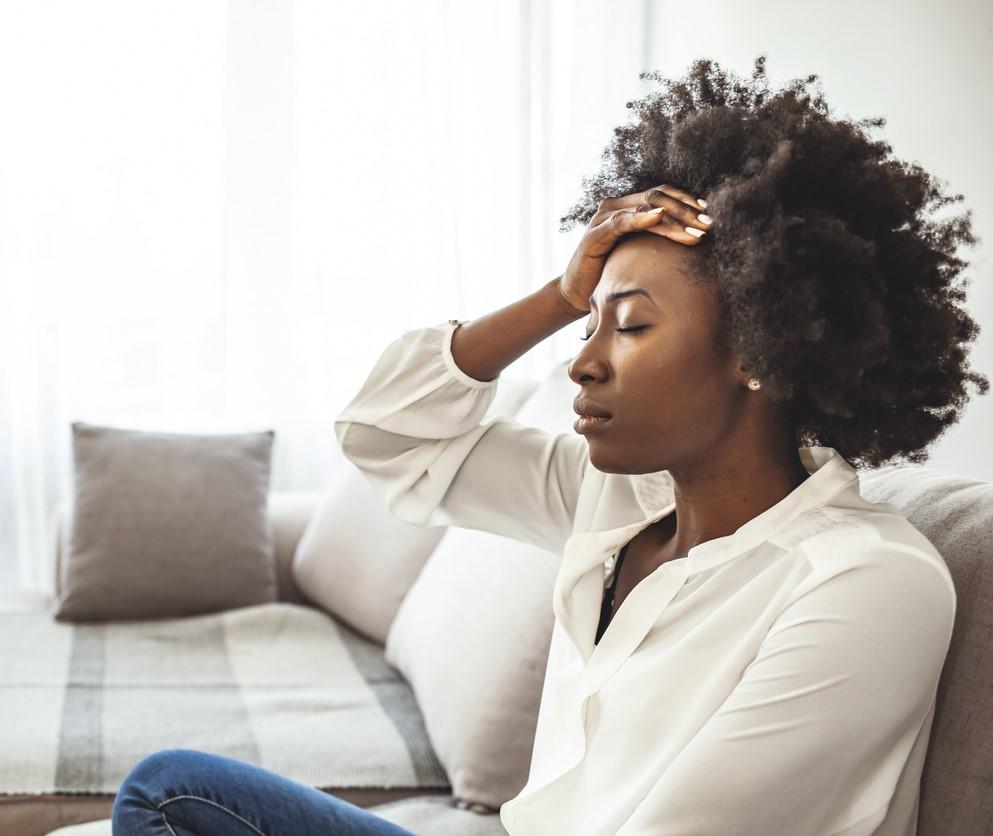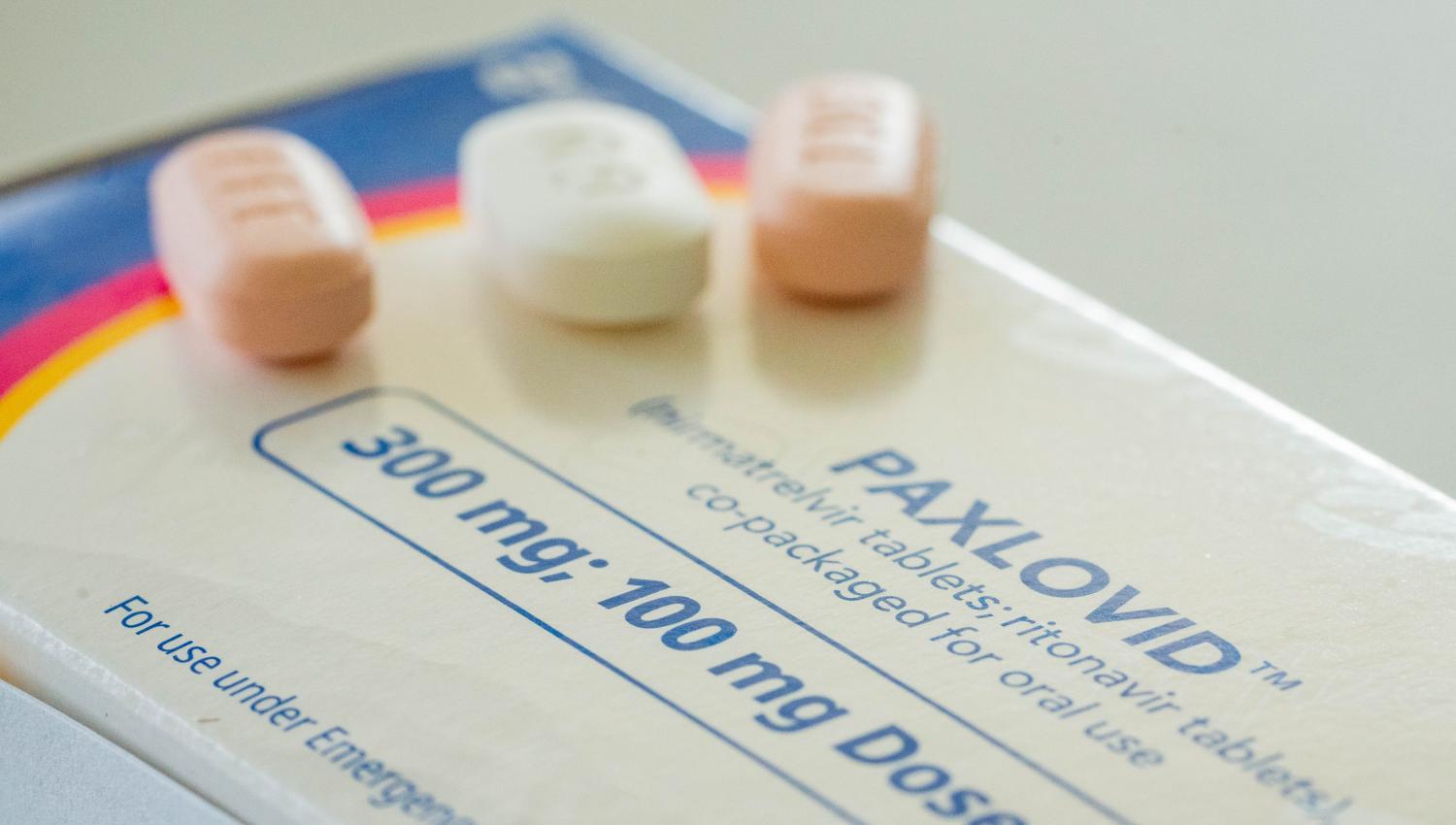As the immediate threat of the COVID-19 pandemic has waned recently, a more complex legacy has emerged: Long COVID, or persistent symptoms following an acute infection, affects as many as 18 million Americans.
Long-COVID patients experience symptoms ranging from mild to debilitating, and they commonly include brain fog, fatigue, shortness of breath. With many unknowns regarding testing, treatment, or ways to prevent or predict the condition, researchers and clinicians have been exploring what medical agents, if any, can help reduce or limit post-COVID symptoms.
Last spring, some promising research out of the Veterans Affairs system showed that Paxlovid, the Pfizer-produced COVID antiviral drug approved for use in the United States to prevent serious complications from infection in at-risk populations, could moderately reduce the risk of long COVID if given during the acute infection.
Clearly, the jury is still out.
But now, a group out of University of California–San Francisco (UCSF), has found the opposite: The antiviral not only does not prevent long COVID from developing, if used it leads to more rebounding infections.
"Clearly, the jury is still out," said Ziyad Al-Aly, MD, chief of research and development at the Veterans Affairs St. Louis Health Care System. "Discordant results are an opportunity to learn why something works here, but not there."
Observational studies show some protection

Al-Aly led the team of researchers who published in JAMA Internal Medicine last March the study showing Paxlovid was tied to a 26% lower risk of developing long COVID over a 6-month period. The study also showed Paxlovid might decrease the risk of death by 47% and the risk of hospitalization by 24%.
The study was based on prescription records of US Department of Veterans Affairs enrollees in 2022.
More recent studies suggest Al-Aly’s findings were a mildly promising signal. In October 2023, researchers from the National Library of Medicine and the National Institutes of Health (NIH) found Paxlovid had a smaller relative risk reduction of 13.7% (absolute risk reduction of 2.7%) in reducing long COVID in Medicare enrollees diagnosed as having COVID-19.
Al-Aly said the recent UCSF group's work, which is based on survey results, is interesting but does not provide the solid footing of a randomized control trial (RCT), the gold standard needed to see if Paxlovid does indeed reduce long COVID.
Survey finds no effect
"We are trying to answer causal question with observational data, it’s not easy to do," said Matthew Durstenfeld, MD, a cardiologist and UCSF assistant professor of medicine. Durstenfeld was the lead author of the study showing Paxlovid had no effect in preventing long COVID. Dursetnfeld’s study appeared earlier this month in the Journal of Medical Virology.
In the UCSF study, an online cohort of participants who were vaccinated at the time of infection reported either taking or not taking Paxlovid, and were surveyed 4 to 5 months after infection to see if using the antiviral was associated with a lower risk of long COVD. None of the patients were hospitalized for their initial infections.
"We found about 16% of the people who took Paxlovid had long COVID," said Dursetnfeld. "It was 14% for the group that didn't take Paxlovid."
Dursetnfeld said his study looked only at people who were experiencing their first COVID-19 infection, and thus they could not have previously had long COVID. "Paxlovid looks good if you count people in control group who already have long COVID," he explained.
He said he was surprised by the findings. After all, the idea of Paxlovid lessening the risk of long COVID makes sense: There has been strong evidence that one of the causes of long COVID may be persistent viral replication in patients, and the antiviral lowers viral counts and suppresses viral replication.
"Unfortunately we didn't find that," said Dursetnfeld, "Paxlovid isn't part of the toolkit for preventing long COVID."
Al-Aly also said that the difference between his group's findings and those of the UCSF study may be due to respondent bias and relying on self-reported long COVID.
"Only a third of study participants responded to the long-COVID survey," Al-Aly said in an email to CIDRAP News. "People who opt to take nirmatrelvir/ritonavir (Paxlovid) may be generally sicker than people who don’t, and may be also more aware of long COVID."
Discordant results are a call to fund clinical trials
Last week researchers from across the country called on US lawmakers during a Senate hearing to fund clinical trials focused on long COVID.
Tiffany Walker, MD, an internist at Emory University and researcher for the NIH RECOVER trial who cofounded a long-COVID clinic at Grady Memorial Hospital, testified at last week's hearing. She said the discordant findings on Paxlovid and long COVID perfectly illustrate why more trials are needed for long COVID.
"There's clearly elements of each of these studies that introduce bias, and those biases could contribute to discordant findings," Walker told CIDRAP News. "Studying the use of Paxlovid in an acute phase RCT would be valuable and warranted."
Studying the use of Paxlovid in an acute phase RCT would be valuable and warranted.
Walker said she personally is intrigued by Paxlovid as a potential cure for patients experiencing long COVID, but as a clinician she's wary of using a medication off the emergency use authorization list. She has seen long COVID patients who take Paxlovid during a subsequent COVID infection and find relief from symptoms.

That finding was echoed by other clinicians and long-COVID researchers, including Robby Sikka, MD, who led the COVID Sports and Society Workgroup.
Sikka recommends Paxlovid to any COVID-19 patient who qualifies for the drug, including all those 60 and older. He said he is intrigued by using the antiviral for longer than the approved 5-day course, and said he has seen evidence in his patients that 10 days is a better course of treatment. Sikka said he has treated 900 patients with a 10-day course of Paxlovid, and has recorded no long COVID cases in that group. He has not yet published those results in a study.
"With 10 days you test negative faster, you become less contagious, and symptoms are reduced faster," Sikka said. Sikka said such dosing is left up to provider discretion, and until RCTS are conducted, won't become widespread.
Though Walker does not prescribe Paxlovid for longer than indicated, she does believe the drug is underused, and possibly helpful in preventing long COVID.
"Whenever I see someone eligible for Paxlovid, I do use it," she said. "But we can't move forward unless we have more clinical trials."



















